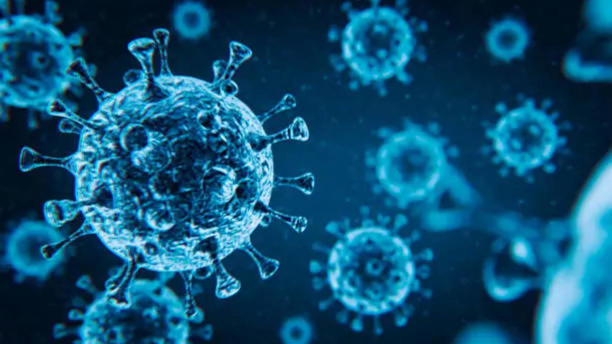JN.1 is a new COVID-19 variant that is spreading quickly in the United States and Canada. It is a subvariant of the Omicron family, which was responsible for the 2022 surge that overwhelmed health care systems across the globe. According to the Centers for Disease Control and Prevention (CDC),
JN.1 is currently the fastest growing variant, accounting for more than one fifth of all COVID infections in the U.S. By the end of the month, it’s also projected to account for more than 40 per cent of cases in Canada. Earlier this week, the World Health Organization (WHO) classified the JN.1 coronavirus strain as a “variant of interest” due to its rapid spread.
The risk to the public is low from this specific strain, but it could increase the burden of respiratory infections in many countries. JN.1 is causing a rise in infections and seems to be exerting its dominance in multiple settings around the world. Dr. Zain Chagla, infectious disease physician and head of infectious disease services at St. Joseph’s Health Care in Hamilton, Ont. recently told Yahoo Canada that JN.1 is considered the “offspring” of a strain we have dealt with before: BA.2.86, also known as “Pirola,” which has been spreading since the summer. Both variants are descendents of Omicron and, according to the CDC, are nearly identical.
The only difference between JN.1 and BA.2.86 is a single spike protein, which helps the virus better invade human cells. This small mutation may be enough to make the strain predisposed to better receptor binding and better antibody evasiveness. This can lead to the strain’s ability to “cause an impact in terms of spread or the ability to infect populations.”
Symptoms of JN.1
According to the CDC, symptoms of a JN.1 COVID-19 infection may include:
- Cough
- Sore throat
- Headache
- Muscle aches
- Fever
- Change in or loss of taste or smell
- Congestion and runny nose
JN.1 is a highly mutated COVID-19 variant that is now the fastest growing variant in the U.S. and Canada. It is closely related to a strain we’ve seen before, BA.2.86, which has been spreading in the U.S. since the summer. JN.1 has one more mutation compared to its parent strain BA.2.86, which has more than 30 mutations that set it apart from the omicron XBB.1.5 variant. JN.1’s growth comes as COVID hospitalizations rise quickly, influenza continues to spread and RSV activity is still high in many places, according to a Dec. 14 update from the CDC. The agency warned that at the end of the month, emergency rooms and hospitals could become strained, similarly to last year, especially in the South.



Comments
Post a Comment